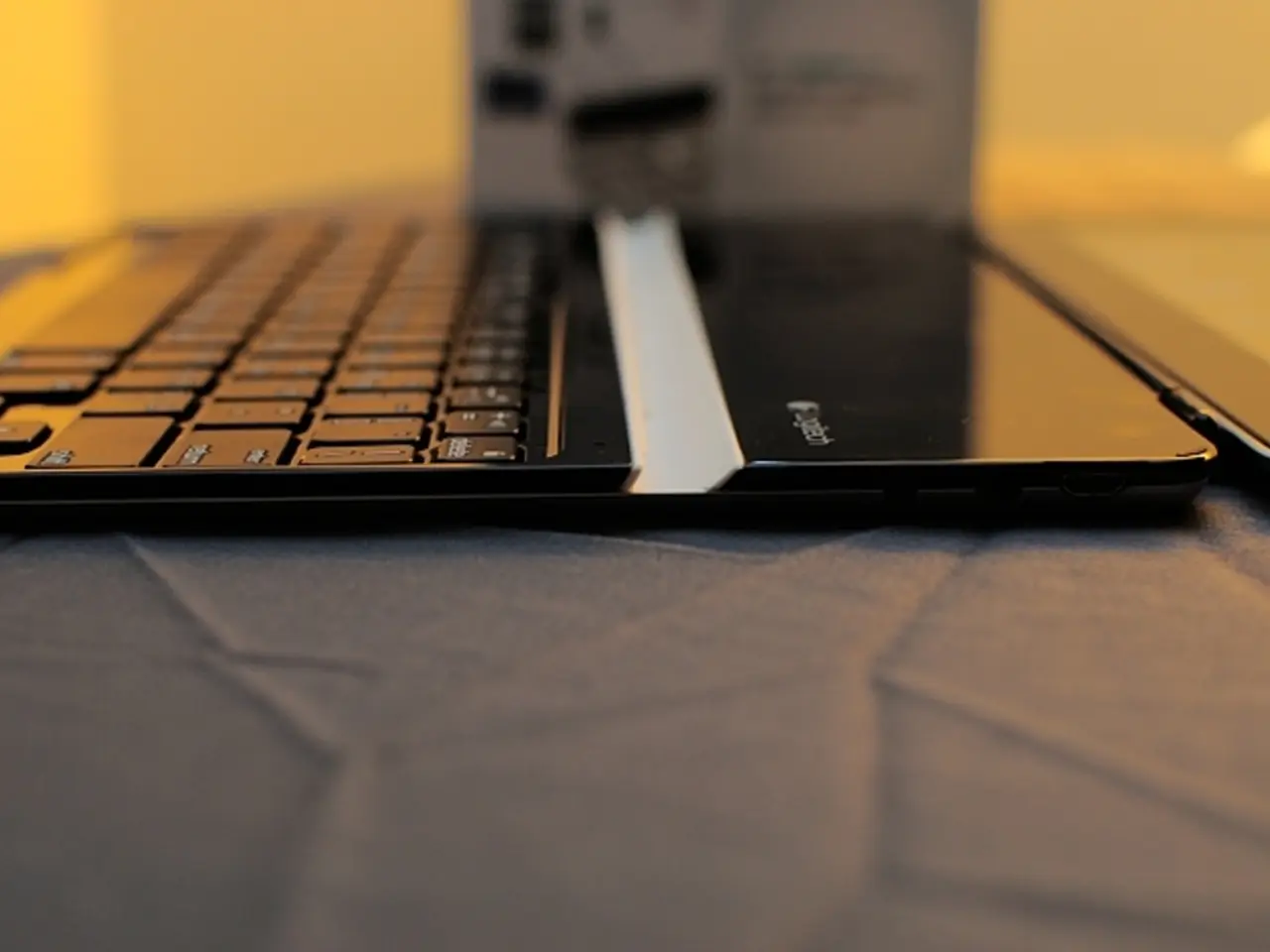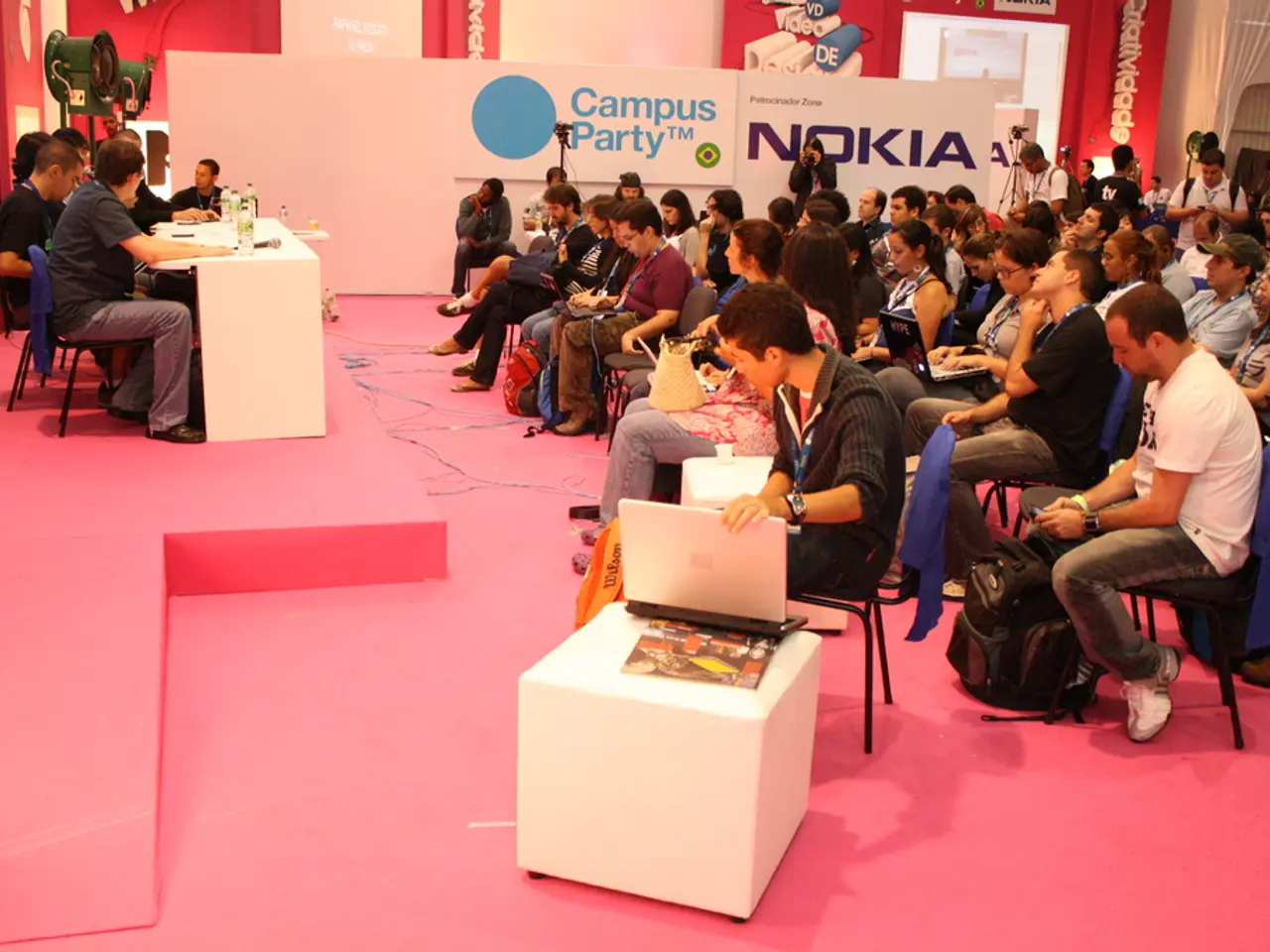Smartphones viewed as evolutionary parasites, with humans serving as their host, according to biologist Robert Brooks' perspective.
In a thought-provoking scientific article, evolutionary biologist Robert Brooks and philosopher Rachael L. Brown argue that the relationship between humans and smartphones can be likened to a parasitic one. This perspective challenges the common notion that technology serves as a mutualistic partner, providing convenience in exchange for data.
Brooks, who is also the author of "Artificial Intimacy: Virtual Friends, Digital Lovers and Algorithmic Matchmakers" (2021), contends that smartphones exploit users through addictive design and continuous data harvesting, primarily to benefit technology companies and advertisers. This relationship, he suggests, mirrors that of biological parasites like head lice, which survive by feeding on their hosts.
The authors draw parallels with certain wasps and aphids, where wasp eggs develop by feeding on the aphid. Similarly, smartphones, viewed as an extension of a private enterprise, develop by invading their human hosts. Unlike biological parasites that can be removed, smartphones' integration into daily life makes them difficult to avoid or combat.
The article raises concerns about the societal risks of this parasitism, suggesting that regulatory measures to restrict addictive app features and data exploitation are necessary to mitigate the costs imposed on humans. However, it does not propose specific solutions or alternative technologies that might alleviate the alleged traumatizing effects of smartphones.
The authors argue that recognising this parasitic relationship is the first step in understanding our complex relationship with technology. They draw a comparison between the traumatic effects of the parasite in the film "Alien" and the alleged traumatization of humans by their relationship with smartphones. Yet, they do not explore the psychological or physiological mechanisms through which smartphones might traumatize humans.
The article blends scientific considerations with pop philosophy, offering a unique perspective on the human-technology relationship. However, it does not provide specific evidence or data to support its claims about the parasitic relationship between humans and smartphones or the traumatizing effects of this relationship on a planetary scale.
As we continue to navigate our increasingly digital world, this provocative article serves as a call to consider the potential costs of our reliance on technology and to seek solutions that promote a more balanced and mutually beneficial relationship between humans and smartphones.
- The relationship between humans and smartphones, as suggested by science and philosophy, can be likened to a parasitic one, with smartphones exploiting users and surviving by feeding on their data, similar to biological parasites like head lice.
- In the realm of health-and-wellness and mental-health, this parasitic relationship might have traumatizing effects on humans, much like the traumatic impact of a parasite seen in films like "Alien," yet the scientific article does not delve into the psychological or physiological mechanisms through which this could occur.




